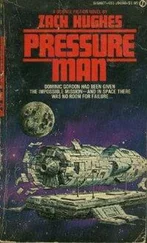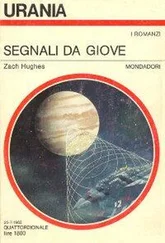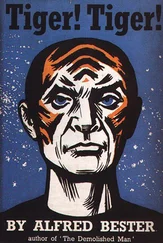Zach Hughes - Tiger in the Stars
Здесь есть возможность читать онлайн «Zach Hughes - Tiger in the Stars» весь текст электронной книги совершенно бесплатно (целиком полную версию без сокращений). В некоторых случаях можно слушать аудио, скачать через торрент в формате fb2 и присутствует краткое содержание. Жанр: Фэнтези, на английском языке. Описание произведения, (предисловие) а так же отзывы посетителей доступны на портале библиотеки ЛибКат.
- Название:Tiger in the Stars
- Автор:
- Жанр:
- Год:неизвестен
- ISBN:нет данных
- Рейтинг книги:3 / 5. Голосов: 1
-
Избранное:Добавить в избранное
- Отзывы:
-
Ваша оценка:
- 60
- 1
- 2
- 3
- 4
- 5
Tiger in the Stars: краткое содержание, описание и аннотация
Предлагаем к чтению аннотацию, описание, краткое содержание или предисловие (зависит от того, что написал сам автор книги «Tiger in the Stars»). Если вы не нашли необходимую информацию о книге — напишите в комментариях, мы постараемся отыскать её.
Tiger in the Stars — читать онлайн бесплатно полную книгу (весь текст) целиком
Ниже представлен текст книги, разбитый по страницам. Система сохранения места последней прочитанной страницы, позволяет с удобством читать онлайн бесплатно книгу «Tiger in the Stars», без необходимости каждый раз заново искать на чём Вы остановились. Поставьте закладку, и сможете в любой момент перейти на страницу, на которой закончили чтение.
Интервал:
Закладка:
Scanned by Highroller. Proofed by the best elf proofer. Made prettier by use of EBook Design Group Stylesheet. Tiger in the Stars by Zach Hughes CHAPTER ONE I, John Plank, being of sound mind and having telescopes for eyes and electronic sensors for fingertips, must be going mad. I am alive. I think. I see. I feel. But I can't move my arms or my legs. Where are my arms and my legs? I am a man, have been a man for years, and a man does not see the stars as if looking through telescopes. The stars crowded him. They were impossibly huge, improbably near.
Stars are, unless you're close to a system, a sprinkle of light, tiny things. They are not huge, individual suns seen everywhere as if you were looking at old Sol from the Earth. He could see a galaxy shaped like a small-crowned, wide-brimmed hat. Near that galaxy was a double whorl of merged galaxies, their bright hearts aglow. He was dazed by the richness, the brightness of the colors. Hot, population-one stars were rich blue. A cool, red giant, the nearest
star, sported a family of planets: four gas giants, a distant icy midget of a planet, two planets near or in the life zone, which he could see, feel. The gas giants sent out snarls of radio waves. One emanated more heat than it received from its sun and he could make it out, could measure that heat output. No man could do that. His senses were acute. They covered the known spectrum. He saw long and short light waves, radiation; he detected the force of the star's gravitational field, could see the huge gouts of flame shooting upward in a solar flare, could measure the solar wind. No man could, with his own senses, see so much, hear so much. He flexed his hands and felt the working of wondrous mechanisms spreading over a huge area, connected by thousands of intricate electrical circuits. His attention was caught by a glowing nebula. Vivid colors pleased his senses and he realized that he was seeing the nebula not with human eyes but as if he were looking through a series of filters. He sensed movement. He looked into eternity through Hercules. He knew the configuration, could look past identifiable stars into the distant reaches of space to the
cluster of galaxies there, spiral, globular, doubled. For a moment he forgot his confusion and admired the technical achievement as he looked through what must have been the equivalent of a 16-meter instrument of amazing sophistication. His was a giant of an eye, all seeing, the field of view all encompassing. It was, he knew, impossible. He could not be seeing what he saw. He moved his head and the galaxy rotated around him. He felt a massive surge of vertigo and withdrew, closing himself off. He moaned and clutched at himself and found nothing. He felt smoothly functioning power, muted hummings, clicking relays, lighted corridors and snug cabins, circuits making and breaking with calibrated precision. The inhumanness of it caused him to scream. His voice filled empty corridors and cabins and the big compartment up front, which was empty of all save the muted click and hum of a living ship. To preserve his sanity he explored his own mind and remembered. He remembered walking laboriously, clad in life system gear, in the sub-Earth gravity of a dim, cold world. He saw Plank's Pride as she sat atop her fins on the fused stone of the pad, her hatch open. He could see the white dwarf star rising to begin a 73 Earth-hour day. Before the day was one quarter old, the Pride would lift. Earth was four-point-two-eight light-years away, invisible. It would have taken a power instrument to even locate old Sol, but it was there, waiting for him to come home. Thinking of home gave him strength. He ceased his musings and trained his powerful eye on the stars around him, looking, searching. He had never seen space as he was seeing it now. All the reference points were changed. All the colors were different. Ordinarily, space was a vast emptiness sprinkled with white. Space was black velvet and salt. But with his new vision space was a study in living blues and reds. More in control of himself now, he set about trying to solve the problem of what had happened to him. He studied the surroundings. There was air in the ship and it was rich and sweet. He did not, however, breath it. Again he felt the threat of shock, forced himself to close his eyes and try to sense the movement of the ship. A near star was closing at a speed that amazed him. «Light minus ten,» he said aloud. The sound of his own voice was comforting. He heard it within his head
and on the speakers throughout the ship, a harsh rasp of a voice, the result of damage suffered when a line ruptured on the Pride halfway out from home on the first trip, forcing him to breathe acrid fumes before he could take protective measures. He continued his study of himself. He was small and compact and his brain was expanded, linked into the finest set of computers and instruments he'd ever seen. Someone had advanced science to the ultimate. The life support system was a dream, operating with 100 percent efficiency. And then there was the power. The power was a mass of overlapping fields without heavy shielding. Inside the fields was the heat of a sun. The fields shimmered and writhed even in rest. They spoke of power, which once again sent him into a daze. One thing for sure, he was not on the old Pride. This ship, of which he was a part, was bigger. Not as big as one of the colonizer starships, but bigger than Pride. And because her power was so compact, there was room for a large cargo hold, extravagantly aired, rich in oxygen. He would need no suit to work that hold. It was time to look outside again. He scanned the area. He found the Crab, but it was not in its proper position. He searched for other landmarks. Everything indicated that he was a great distance from the last point he remembered. But the familiar guide stars were there, identified by their spectrum. All the points of reference told him that he was in the home arm, the Orion Arm, but exactly where was the question. All the power of his eyes did not find any of the home neighborhood stars. An hour of scanning gave him no clue as to the whereabouts of his own
star, old Sol. It was puzzling. He could remember all of it. But he couldn't remember important details of direction and reference. He could not place Sol in relationship with any of the known points. His memory held all the data needed to seek and find Cassiopeia and to identify her, but when he tried to place Sol in relation to Cassiopeia, or any of the other known points, his mind went blank. He explored the extensions of his mind represented by the complicated mechanics of his ship and found extraordinary charts that were more complete and more detailed than any he'd ever seen. He discovered more familiar stars, Sirius, Vulpecula. But Sol, as far as the charts were concerned, did not exist. He began to take stock of himself. His brain was of soft living flesh and connected with materials other than flesh; but it lived. He could trace his own synapses, feel the power of his thought waves. In his mind he was a complete man, an expanded man, but in body he was nothing more than a small mass of cells encased in a container. There had to be an explanation. He must find it. He would go home and there he'd learn the answer. He had fantastic ability. He could measure the distance to the nearest and the most remote stars. He could shoot a bearing on a distant body and know its mass. He had known points. Triangulate and there was Sol and home. The point ended in open space, in the area among the vast emptiness between the spiral arms. There was nothing. Drifting molecules. The debris of the universe. Simply put, he was lost. He realized that, although he could remember home, names—Sol, Centauri Proxima and Alpha—the distances, the times of travel, the ponderous weight of the old Pride being pushed by brute force against the old Einsteinian laws, he could not place the grouping of stars in reference to his own position or to any known star.
Читать дальшеИнтервал:
Закладка:
Похожие книги на «Tiger in the Stars»
Представляем Вашему вниманию похожие книги на «Tiger in the Stars» списком для выбора. Мы отобрали схожую по названию и смыслу литературу в надежде предоставить читателям больше вариантов отыскать новые, интересные, ещё непрочитанные произведения.
Обсуждение, отзывы о книге «Tiger in the Stars» и просто собственные мнения читателей. Оставьте ваши комментарии, напишите, что Вы думаете о произведении, его смысле или главных героях. Укажите что конкретно понравилось, а что нет, и почему Вы так считаете.




